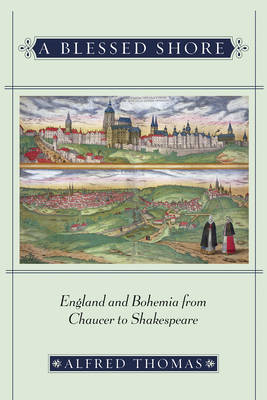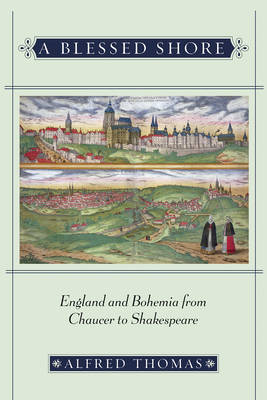
- Retrait gratuit dans votre magasin Club
- 7.000.000 titres dans notre catalogue
- Payer en toute sécurité
- Toujours un magasin près de chez vous
- Retrait gratuit dans votre magasin Club
- 7.000.0000 titres dans notre catalogue
- Payer en toute sécurité
- Toujours un magasin près de chez vous
Description
In The Winter's Tale, Antigonus announces that his ship has washed up on the shores of Bohemia. How and why landlocked Bohemia? Did Shakespeare not know his geography, or is something else at work here? Alfred Thomas answers these questions by exploring cross-cultural interactions between England and Bohemia from the fourteenth to the early seventeenth century. He is interested less in the diplomacy and politics of this history than in the images--the shifting blends of fact and fiction--that each of the two cultures nourished about the other. Although Thomas gives original readings of famous English texts by Chaucer and Shakespeare, this is also a book about Czech writers and travelers; one Czech expatriate, Anne of Bohemia, became Queen of England. For both countries these were decades of religious and dynastic turbulence, and Thomas's analyses of the relations between Wyclif and Hus, Lollards and Hussites, help us to understand why Bohemia was viewed as an almost utopian land of refuge ("a blessed shore" on which a ship might wash up) for persecuted English men and women. Of particular interest is his analysis of the ways in which English court culture emulated that of Prague, which was an imperial seat at a time when England was still a peripheral place with little influence on the heart of Europe. Thomas shows that the relationship between the two cultures was never a straightforward one, but a mirror-like formation in which each saw the other "through the distorted and subjective effect of its own reflection."
Spécifications
Parties prenantes
- Auteur(s) :
- Editeur:
Contenu
- Nombre de pages :
- 256
- Langue:
- Anglais
Caractéristiques
- EAN:
- 9780801445682
- Date de parution :
- 15-08-07
- Format:
- Livre relié
- Format numérique:
- Genaaid
- Dimensions :
- 162 mm x 232 mm
- Poids :
- 485 g

Les avis
Nous publions uniquement les avis qui respectent les conditions requises. Consultez nos conditions pour les avis.






